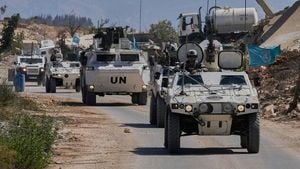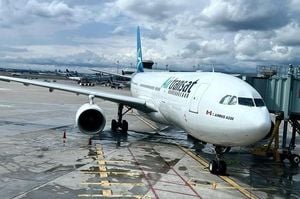The political landscape of Bolivia has undergone a seismic shift following the presidential elections held on August 17, 2025. After two decades of dominance, the Movement Toward Socialism (MAS)—the party that once symbolized hope and transformation for Bolivia’s indigenous majority—suffered a resounding defeat. This loss, as detailed by multiple sources including COHA and ColombiaOne, is widely seen as self-inflicted, the result of bitter infighting, personal ambition, and a leadership unwilling to embrace generational change.
Bolivia’s recent history cannot be understood without the towering figure of Evo Morales. Elected in 2005 as the nation’s first indigenous president, Morales’s ascent marked a new era. Under his stewardship, MAS consolidated power and radically transformed the state’s structure. Morales championed a new Constitution that recognized Bolivia as a plurinational state, nationalized hydrocarbons, and implemented redistributive policies that reduced poverty and strengthened indigenous representation. As ColombiaOne notes, these achievements made Bolivia a model for Latin America’s early-21st-century “progressive wave.”
Yet, as often happens in politics, the seeds of success contained the roots of future crisis. MAS’s hegemony, first under Morales and then under his former finance minister Luis Arce, began to erode as internal clashes developed. The two leaders’ differences, more personal than ideological, set the stage for a dramatic unraveling. According to COHA, “Evo Morales and Luis Arce Catacora dedicated themselves to squandering and exhausting in three years all the strength accumulated over decades of political work by thousands of Bolivians.”
The crisis first became visible in 2016, when Morales lost a referendum that would have allowed him to seek another reelection. Undeterred, he ran again in 2019, sparking a disputed election marred by fraud allegations and his subsequent ouster in a coup d’état. The brief right-wing interregnum under Jeanine Áñez was a traumatic episode for Bolivia, especially for indigenous communities who faced renewed repression.
Fast forward to 2025, and the MAS entered the presidential race fatally divided. On one side stood Andrónico Rodríguez, an indigenous leader and Morales protégé, who launched an independent bid after Morales was disqualified from running. On the other was Eduardo del Castillo, the official MAS candidate favored by the Arce government. Del Castillo’s candidacy—controversially, as a white man in a majority-indigenous country—alienated much of the party’s base. The result was catastrophic: Rodríguez secured just 8.2% of the vote, del Castillo 3.1%, and the combined MAS vote share plummeted to a mere 11.3%, a stunning fall from the 55% the party enjoyed just five years earlier, as reported by COHA.
But the most damning statistic was the nearly 20% of ballots cast as null votes. Morales, having been barred from standing, called on his supporters to “punish” the process by casting null votes. This move, as ColombiaOne explains, was a clear message: if Morales couldn’t be president, no other leftist should. “Morales behaved more like a wounded strongman than a statesman committed to ensuring a collective project’s continuity,” the article observes. This strategy, aimed at sabotaging his own allies, ultimately handed power back to the conservative elites MAS had spent two decades opposing.
The opposition, sensing opportunity, quickly consolidated. Samuel Doria Medina, a billionaire businessman and member of the Socialist International, conceded in the first round and threw his support behind Rodrigo Paz Pereira, a Social-Christian senator and son of former president Jaime Paz Zamora. Jorge “Tuto” Quiroga, a neoliberal stalwart and ally of right-wing leaders across Latin America, finished second and will face Paz in the runoff scheduled for October 19, 2025. Both right-wing candidates have signaled their intent to reform the Plurinational Constitution and privatize state-owned enterprises—moves that threaten to roll back the social gains indigenous communities have made in recent years.
Political rhetoric has already turned ominous. Quiroga declared, “land is not communal; land always has one owner,” a statement that has alarmed indigenous groups and progressives alike. Meanwhile, Doria Medina has called for the release of political prisoners, paving the way for the return of controversial figures like Jeanine Áñez and Luis Fernando Camacho, both associated with the repression of indigenous protesters in 2019.
The defeat of MAS is not simply a loss for socialism, but a defeat caused by divisions within the revolutionary ranks, exacerbated by foreign interference. According to COHA, a leaked 2024 audio from the U.S. Embassy in La Paz revealed plans to intervene in Bolivia’s political affairs. Minister Counselor Debra Hevia was quoted as saying, “We have been working for a long time to achieve change in Bolivia. Time is of the essence for us, but for it to be a real change, Evo and Arce have to leave power and close that chapter.” Still, both sources agree that the main cause of MAS’s collapse was internal: a leadership unwilling to pass the torch and a party consumed by personalist politics.
This infighting has left indigenous communities facing a future dominated by neoliberal parties intent on undoing the “process of change” that began with Morales’s rise. The historic significance of MAS’s ascent cannot be overstated. Before Morales, indigenous Bolivians were systematically excluded from power, even barred from entering Congress in traditional dress or speaking their languages. The party’s achievements—redistributive policies, plurinational identity, and increased representation—transformed the nation’s social fabric.
Now, as María Soledad, a sociologist from Cochabamba, told COHA, “a very long period of reconstruction will begin in a country where indigenous people are despised for their condition. The only positive thing is that this is not a start from scratch, because this country will never return to what it was before the process of change.”
The challenge for the Bolivian left is stark. As ColombiaOne argues, MAS must “reinvent itself or face irrelevance.” The party’s future depends on overcoming the “strongman” logic that has defined it since its founding. Morales’s refusal to accept generational transition and his centralization of power have, in the end, squandered the opportunities for a new, popular-rooted government. The story of MAS is a cautionary tale for progressive movements everywhere: personalism may build a movement, but it can also destroy it.
In his final televised address in 2012, Venezuelan President Hugo Chávez urged, “Unity, Unity, Unity of the patriots… No matter how great the difficulties that face us… the responsibility of all patriots, revolutionaries, those who feel the homeland to the core . . . is unity, struggle, battle, and victory!” For Bolivia’s left, the path forward will require nothing less.



